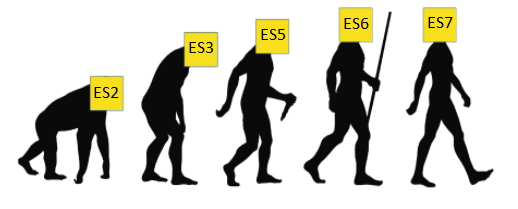Olá, Habr! Apresento a vossa atenção a tradução do artigo editado porxfides
Autor original: Marja Hölttä
Tradução da primeira parte.

Vamos praticar a leitura das especificações um pouco mais. Se você não viu o artigo anterior, é hora de assisti-lo. Na primeira parte, conhecemos o método Object.prototype.hasOwnProperty simples . Além disso, examinamos a lista de operações abstratas que são chamadas quando esse método é executado. Também aprendemos sobre as abreviações específicas "?" e "!" relacionado ao tratamento de erros. Finalmente, obtivemos informações sobre tipos de linguagem, tipos de especificação, slots internos e métodos internos.
Pronto para a Parte 2?
Atenção! Este episódio contém uma cópia dos algoritmos da especificação ECMAScript de fevereiro de 2020. Naturalmente, com o tempo, as informações ficarão desatualizadas.
, : , , , , , . :
const o1 = { foo: 99 };
const o2 = {};
Object.setPrototypeOf(o2, o1);
o2.foo;
// → 99?
, . — .
[[GetOwnProperty]] [[Get]]. , — [[Get]]. , [[Get]], , , , .
[[Get]] — . ( ) . [[Get]], . .
[[Get]] ( P, Receiver ). OrdinaryGet. , [[Get]] «» «» ECMAScript Receiver, :
1. Return ? OrdinaryGet(O, P, Receiver)., Receiver — , this , -.
OrdinaryGet(O, P, Receiver) :
1. Assert: IsPropertyKey(P) is true.
2. Let desc be ? O.[[GetOwnProperty]](P).
3. If desc is undefined, then
a. Let parent be ? O.[[GetPrototypeOf]]().
b. If parent is null, return undefined.
c. Return ? parent.[[Get]](P, Receiver).
4. If IsDataDescriptor(desc) is true, return desc.[[Value]].
5. Assert: IsAccessorDescriptor(desc) is true.
6. Let getter be desc.[[Get]].
7. If getter is undefined, return undefined.
8. Return ? Call(getter, Receiver).: , [[Get]] , OrdinaryGet. , [[Get]] , OrdinaryGet. , , null.
, , o2.foo. OrdinaryGet «» «2», «» — «foo». , O.[[GetOwnProperty]](«foo») undefined, if 3, «o2» «foo».
3.a, «parent» «o2» — «o1». «parent» null, if 3.b.
3. [[Get]] «foo» . «o1» — , [[Get]] OrdinaryGet . , «» «1», «» «foo».
2 O.[[GetOwnProperty]](«foo») , desc.
— . [[Value]]. [[Get]] / [[Set]]. , «foo» — .
, desc 2, if 3.
4. , 99, [[Value]] 4. .
Receiver ?
Receiver - 8. this, -.
OrdinaryGet Receiver ( 3.c). , Receiver.
, [[Get]], GetValue, Reference. Reference — , , strict. o2.foo «o2», — «foo», strict — false.
: Reference Record?
Reference Record, . , . , Reference Record .
GetValue.
, GetValue ( V ) :
1. ReturnIfAbrupt(V).
2. If Type(V) is not Reference, return V.
3. Let base be GetBase(V).
4. If IsUnresolvableReference(V) is true, throw a ReferenceError exception.
5. If IsPropertyReference(V) is true, then
.If HasPrimitiveBase(V) is true, then
i.Assert: In this case, base will never be undefined or null.
ii.Set base to ! ToObject(base).
b.Return ? base.[[Get]](GetReferencedName(V), GetThisValue(V)).
6. Else,
a.Assert: base is an Environment Record.
b.Return ? base.GetBindingValue(GetReferencedName(V), IsStrictReference(V))Reference o2.foo, property reference.
, if 5. 5.a, «2» (, , , BigInt, Boolean, Undefined, Null).
[[Get]] 5.b. Receiver, — , GetThisValue(V). GetThisValue( V ) Reference:
1. Assert: IsPropertyReference(V) is true.
2. If IsSuperReference(V) is true, then
a.Return the value of the thisValue component of the reference V.
3. Return GetBase(V).o2.foo, if 2, o2.foo Super Reference( super.foo), , 3 Reference, «o2».
, , Receiver Reference, , , . , , , , -, Receiver this.
, this , , , .
!
const o1 = { x: 10, get foo() { return this.x; } };
const o2 = { x: 50 };
Object.setPrototypeOf(o2, o1);
o2.foo;
// → 50- «foo», . «this.x.».
o2.foo — ?
, , , this , , , . , this «2», «1». , , : o2.x o1.x. o2.x.
, ! , .
— — [[Get]]?
, [[Get]] , o2.foo? , - . !
, [[Get]] GetValue, References. GetValue?
MemberExpression
. , , .
- , .
, . , (Yield, Await ..) .
, MemberExpression :
MemberExpression :
PrimaryExpression
MemberExpression [ Expression ]
MemberExpression . IdentifierName
MemberExpression TemplateLiteral
SuperProperty
MetaProperty
new MemberExpression Arguments7 MemberExpression.
MemberExpression PrimaryExpression. MemberExpression MemberExpression Expression, : MemberExpression[Expression], o2[’foo’]. MemberExpression.IdentifierName, o2.foo — .
Runtime Semantics: Evaluation for MemberExpression: MemberExpression. IdentifierName :
1. Let baseReference be the result of evaluating MemberExpression.
2. Let baseValue be ? GetValue(baseReference).
3. If the code matched by this MemberExpression is strict mode code, let strict be true; else let strict be false.
4. Return ? EvaluatePropertyAccessWithIdentifierKey(baseValue, IdentifierName, strict).EvaluatePropertyAccessWithIdentifierKey, . EvaluatePropertyAccessWithIdentifierKey(baseValue, identifierName, strict) baseValue, identifierName, strict :
1. Assert: identifierName is an IdentifierName
2. Let bv be ? RequireObjectCoercible(baseValue).
3. Let propertyNameString be StringValue of identifierName.
4. Return a value of type Reference whose base value component is bv, whose referenced name component is propertyNameString, and whose strict reference flag is strict., EvaluatePropertyAccessWithIdentifierKey Reference, baseValue base, identifierName , strict .
, Reference GetValue. , , Reference .
MemberExpression
:
console.log(o2.foo);, ArgumentList: AssignmentExpression. , . GetValue :
Runtime Semantics: ArgumentListEvaluation
1. Let ref be the result of evaluating AssignmentExpression.
2. Let arg be ? GetValue(ref).
3. Return a List whose sole item is arg.o2.foo AssignmentExpression, , . , , , , .
A etapa 1 avalia o algoritmo AssignmentExpression , que é o2.foo . O ref conterá o resultado do cálculo.
Na etapa 2, chamamos GetValue a partir dele. Assim, sabemos que o método interno do objeto [[Get]] será chamado e ocorrerá o encadeamento do protótipo.
Resumo
Nesta parte, vimos como a especificação define os recursos da linguagem; em nosso caso, um protótipo busca em todas as diferentes camadas: construções sintáticas que executam algoritmos e as etapas que os definem.